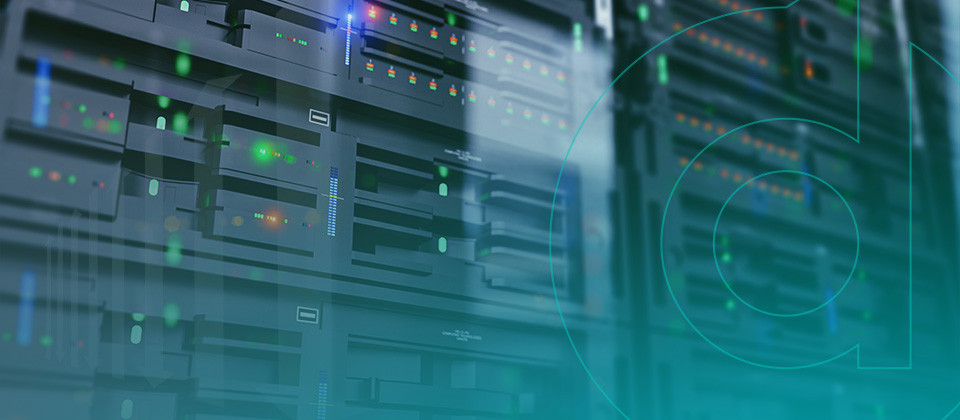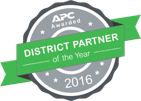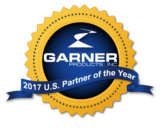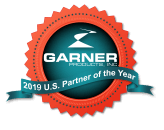
What Are the Different Data Center Storage Solutions?
Enterprises of all types rely on data storage technologies to meet compliance requirements, run applications, backup valuable business data and store large media files such as video. Depending on your organization’s size, budget and goals, you’ll find a number of different data storage methods to choose from.
To help you decide, here is a brief overview of the different data storage solutions on the market today.
1. Storage Area Networks (SANs)
A storage area network (SAN) is a high-performance, network-based solution that provides fast access to centralized block-level storage.
Implementing a SAN improves application performance by separating storage traffic from the rest of LAN traffic, even for your most data-intensive operations. However, network setup and maintenance can be complicated without the proper expertise and resources at your disposal.
SAN systems usually run on fiber channel connectivity and consist of several parts:
- Connected switches
- Storage devices
- Hosts
These systems are ideal for larger enterprises that need to store structured workloads and databases, as they require significant resources to set up and maintain.
2. Network-Attached Storage (NAS)
Network-attached storage (NAS) is essentially a dedicated file-sharing system that operates within your local network. It can take several different forms depending on your requirements, including a series of hard drives in a RAID level 1 array or a single hard drive.
NAS systems store unstructured data as files, much like a SAN. They work by automatically copying these files from the main drive to the secondary drive, creating a backup for convenient recovery following an emergency.
A NAS is simple to deploy, scale and manage, making it a cost-effective solution for both enterprise companies and small to medium-sized businesses (SMBs) that plan to expand their offerings in the future.
The main drawback to a NAS is its dependence on your network — attempting to access data stored in your NAS during high-traffic periods can cause delays that impact productivity for high-performance applications.
3. Cloud and Converged Cloud Storage
When you store data in the cloud, you’re actually storing it offsite with a third-party cloud service provider (CSP). You access this data over the internet, which makes it easier to transfer and manage than locally stored data.
Storing your data in a remote location also protects it from physical disasters that could impact your business’s campus, such as:
- Floods
- Overheating
- Power outages
- Fires
- Theft
Converged Cloud storage is a scale-out cloud architecture that combines storage and computing resources to improve performance and simplify data center operations.
Essentially, this means you consolidate all your separate cloud drives into one unified platform for more convenient management and access. It’s highly scalable, which enables you to rapidly launch new services. And because it combines all your cloud environments under one roof, it eliminates data silos that may exist between drives.
The main drawback to cloud and converged cloud storage is potential cybersecurity concerns. Although many companies mistakenly believe that their cloud providers take over all the responsibility for protecting their data from cybercriminals, the data owners still need to invest in sufficient data security measures to keep their information safe.
4. All-Flash Arrays (AFA)
All-flash arrays (AFA), also called solid-state arrays (SSA), use solid-state flash memory rather than spinning hard disk drives (HDD). Unlike HDDs, AFAs lack internal moving parts. This key difference is why AFAs come with the following advantages:
- Speed: Because of their solid-state architecture, flash arrays can significantly accelerate read and write speeds. This speed allows them to enhance data transfers, minimize latencies and enable high performance in data-intensive applications like real-time analytics.
- Durability: Because AFAs do not have internal moving parts, they are less vulnerable to damage from drops and shocks than HDDs.
- Scalability: AFAs are high-performance, rewritable drives that you can easily repurpose as your business’s computing needs evolve.
Both SAN and NAS storage methods can utilize all-flash arrays, making them highly versatile.
However, it’s important to note that AFAs are one of the higher-cost storage options because they are still fairly new technology. As they develop, they’ll become less costly over time.
5. High-Density Storage
High-density storage solutions increase the areal density of another storage medium, which expands its storage capacity. For example, you can store more on a specific hard disk drive by increasing its density.
Some of the biggest benefits of high-density data center storage solutions include:
- Enhanced performance: Although high-density storage devices can hold ample data, they deliver excellent processing performance and low latency.
- Efficient use of space: High-density devices enable you to maximize your space without sacrificing performance.
- Scalability and flexibility: Using high-density storage devices can help you save on infrastructure costs and upgrades when it’s time to grow your business.
Although high-density drives are still fairly new to the market, they’re an excellent fit for data centers and enterprise businesses that want to maximize their available space.
How to Choose the Right Storage Solution
Choosing the right storage method can help you maximize your investment by boosting performance and increasing productivity. The type of data storage that’s best for your business will depend on several factors:
- How much data you need to store
- Your organization’s size and business model
- Which users need to access that data
- The amount of physical space available
- Your organization’s cybersecurity and compliance requirements
- The amount of control you want over your data
- Your budget
- The specific applications and workflows you use on an everyday basis
If you need help deciding between different storage solutions, or want to create a hybrid solution, working with expert data center consultants can help you find the best storage type for your organization.
Contact DataSpan to Learn More About Data Center Storage Solutions
At DataSpan, we believe businesses deserve storage solutions that meet their unique needs. We offer custom data storage solutions that provide excellent flexibility, security and responsiveness, so you can deliver optimized experiences for your customers and employees.
To learn more about the types of data storage we offer, find a local representative or reach out to us today.

About the Author: Alex von Hassler’s long term focus is the continued testing, learning, and deployment of modern IT solutions. During his years as a DataSpan team member, his responsibilities grew from managing Salesforce CRM to improving system security, creating marketing initiatives, as well as providing continued support to the highly motivated and experienced team in an ever-changing industry. As DataSpan evolves to provide the best-fitting IT solutions to its customers, Alex von Hassler continues to hone his skills in the world of web-based ERP systems, security, and best customer engagement practices. Empowering such a dynamic team with the right tools provides him with enormous gratification.







